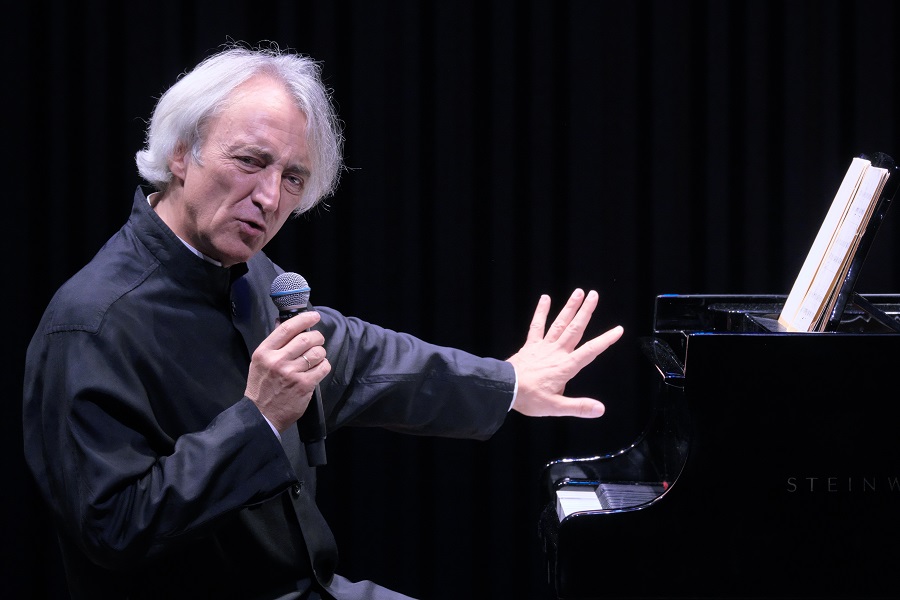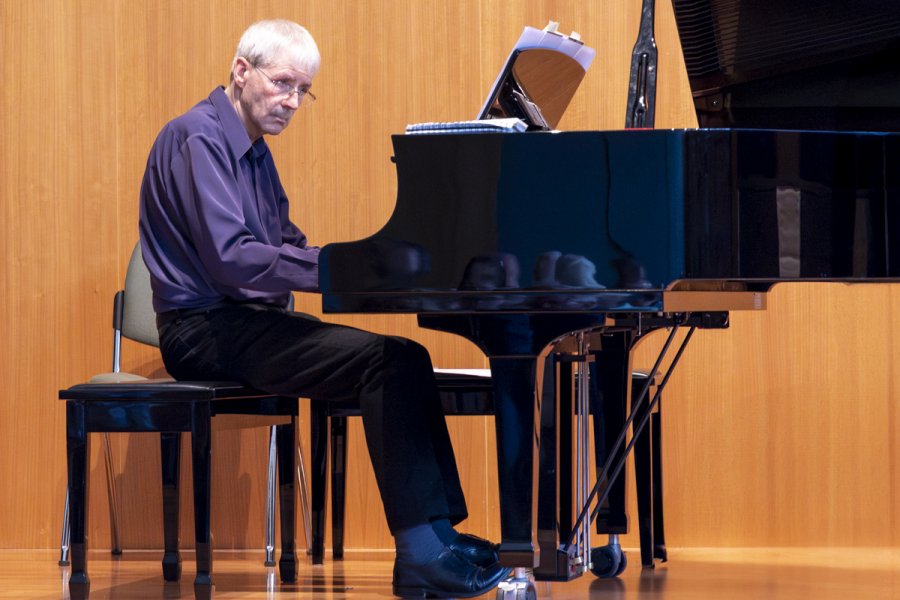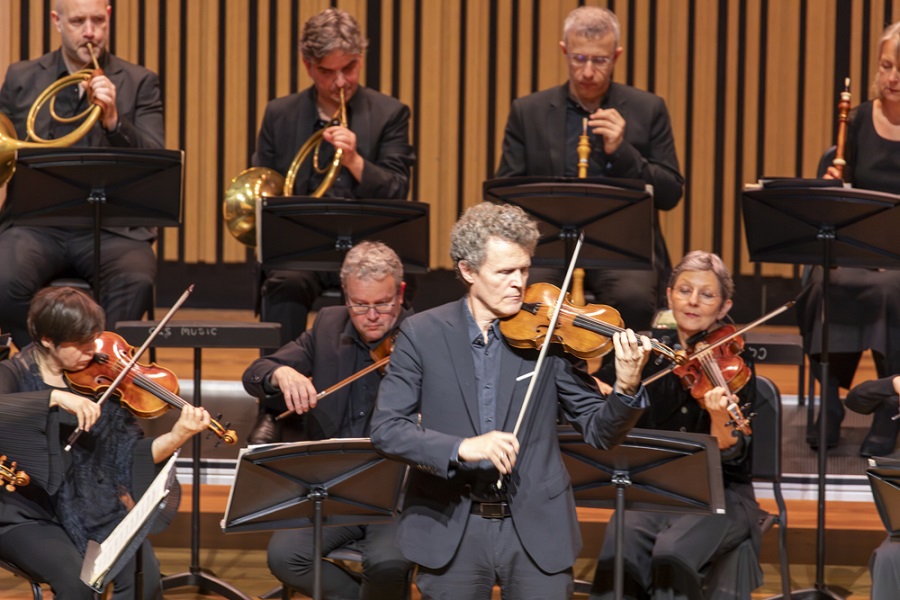
Music / Jean-Efflam Bavouzet, piano. At Snow Concert Hall, November 1. Reviewed by SAM WILSON.
French Pianist Jean-Efflam Bavouzet reminisced, lamented and impressed through the piano at this concert.
On his much-anticipated stop in Canberra, Bavouzet brought to life the works of renowned composers Claude Debussy and Robert Schumann, as well as 20th century German composer Karlheinz Stockhausen.
The program opened in a simple, dreamy atmosphere with Robert Schumann’s Kinderszenen, (Scenes from Childhood). One of the Romantic-period composer’s most popular and well-known works, this evocative 13-movement cycle recalls universal childhood experiences, including perhaps Schumann’s most famous piece, the calm and simplistically beautiful Traümerei (Dreaming). Bavouzet’s effortless technique brought back the naivety and carelessness of childhood.
Halfway through the suite, Bavouzet entranced the audience in the dreamy atmosphere of Debussy’s Rêverie, a piece he wrote early in his career, but grew to despise. Yet its very simplicity cements Rêverie as one of his most popular pieces.
After diving back into Kinderszenen, Bavouzet performed Debussy’s Arabesque No 2, where his flawless skill allowed the music to flow and dance with clean trills and fast arpeggiated runs.
Next came another Arabesque: this time Schumann’s Op.18. The young composer was in love with the renowned pianist Clara Wieck, but her father forbade them from marrying. Bavouzet’s precise attention to dynamics evoked wistfulness and longing, especially in the slower final passage.
To close out the first half, Bavouzet again transported the audience back in time with Debussy’s Children’s Corner, written in 1908 for Debussy’s young daughter Claude-Emma (nicknamed Chouchou). The composer wrote as a subtitle: “To my dear little Chouchou, with tender apologies from her father for what follows”. Bavouzet gave this six-movement suite plenty of artistic flair to mesmerise audience members of all ages.
In the second half, Bavouzet delivered contrasting dissonance and obscurity. To start: the relatively unknown Berceuse Heroique (Lullaby for a Hero). Composed in 1914, Debussy was fighting colon cancer and lamenting his inability to fight in World War I. Fittingly, the piece is dark and dissonant, remaining for much of its duration in the lower register.
Picking up a microphone, Bavouzet then introduced in detail the next piece, Stockhausen’s Klavierstücke IX. Having worked with the composer, Bavouzet has an expert, first-hand understanding of this serialist piece. While this nine-minute atonal work may not ordinarily have been to this audience’s taste, Bavouzet’s explanation and performance may have encouraged some to reassess the world of avant-garde music. The piece maintains the same chord for a full 30 seconds at the start, and each rhythmic phrase follows the mathematical Fibonacci Sequence.
To finish with a bang, Bavouzet wowed the audience with Debussy’s Etudes book II, a set of six immensely challenging pieces considered to be the composer’s late masterpieces. Full of Debussy’s colourful, chromatic musical language, Bavouzet brought the dissonances to the forefront, highlighting the dense textures of the music.
After raucous applause, he played Ravel’s wickedly difficult Toccata from Le Tombeau de Couperin as an encore, drawing a thunderous standing ovation.
This concert brought the simplistic beauty of Schumann and the colourful language of Debussy to form a thoroughly enjoyable program from start to finish. Jean-Efflam Bavouzet left the audience in awe as he took them from innocent childhood through to bleak darkness, proving his status as one of the world’s most acclaimed living pianists.
Who can be trusted?
In a world of spin and confusion, there’s never been a more important time to support independent journalism in Canberra.
If you trust our work online and want to enforce the power of independent voices, I invite you to make a small contribution.
Every dollar of support is invested back into our journalism to help keep citynews.com.au strong and free.
Thank you,
Ian Meikle, editor








Leave a Reply